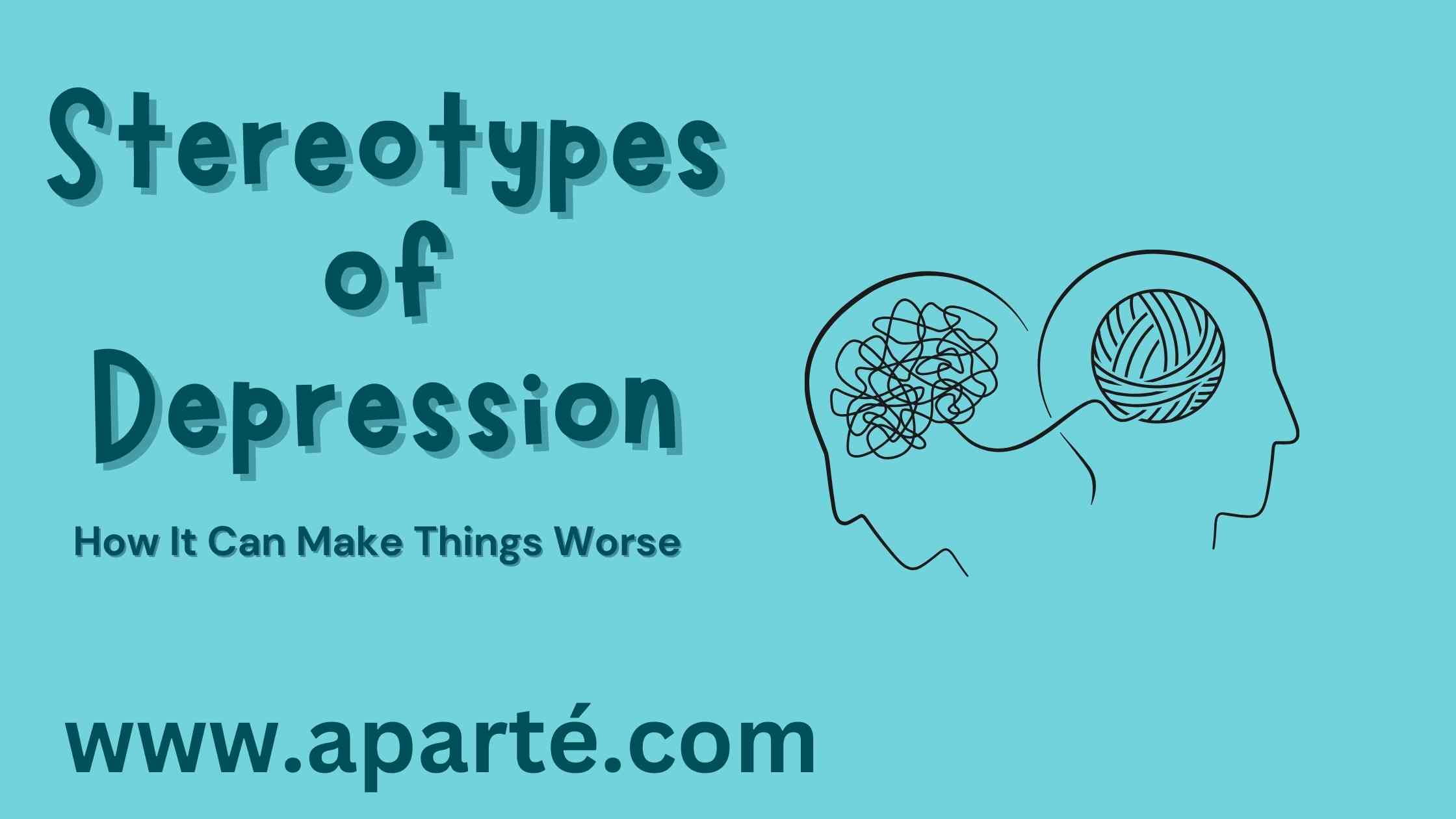- Connection Between Stereotypes and Depression The link between stereotypes and depression lies in the societal expectations and judgments imposed on individuals. The weight of conforming to perceived norms can intensify the internal struggles faced by those experiencing depression.
The Impact of Stereotypes on Mental Health
- Internalization of Stereotypes Individuals experiencing depression may internalize stereotypes related to mental health, leading to feelings of shame and inadequacy. This internalization can create a self-perpetuating cycle of negative thoughts, hindering the path to recovery.
- Social Stigma and Isolation Stereotypes contribute to the social stigma surrounding mental health issues. The fear of being judged or ostracized can lead individuals to isolate themselves, further deepening the emotional impact of depression.
- Fear of Judgment The fear of judgment associated with stereotypes often prevents individuals from seeking help. The reluctance to open up about mental health struggles can delay necessary interventions, making the journey to recovery more challenging.
Perpetuation of Stereotypes in Media
- Portrayal in Movies and TV Shows Media plays a significant role in shaping societal perceptions. Unfortunately, portrayals of depression in movies and TV shows often perpetuate stereotypes, reinforcing harmful beliefs and hindering empathetic understanding.
- Influence of Social Media In the digital age, social media amplifies the impact of stereotypes. Unrealistic depictions of happiness and success contribute to a distorted view of normalcy, making those with depression feel even more isolated and misunderstood.
- Unintended Consequences While media may not intentionally perpetuate stereotypes, the unintended consequences can be severe. It is essential to recognize and address these unintentional contributions to the stigma surrounding depression.
Cultural and Gender Stereotypes in Depression
- Cultural Expectations and Mental Health Cultural expectations regarding emotional expression and coping mechanisms can influence how individuals from different cultural backgrounds experience and address depression. Understanding these nuances is crucial for providing effective support.
- Gender Norms and Mental Well-being Gender stereotypes can create additional challenges for individuals facing depression. Societal expectations regarding strength and emotional resilience may prevent some from seeking help, fearing it contradicts traditional gender norms.
- Breaking the Mold Efforts to break free from cultural and gender stereotypes can lead to a more inclusive and supportive environment for those dealing with depression. Encouraging authenticity and understanding fosters a sense of belonging.
Recognizing and Combating Stereotypes
- Mental Health Education Education plays a pivotal role in dismantling stereotypes. Implementing comprehensive mental health education programs can foster awareness, empathy, and a more nuanced understanding of depression.
- Challenging Stereotypes in Conversations Open conversations about mental health challenges stereotypes. Encouraging dialogue that challenges preconceived notions creates a supportive environment and promotes understanding.
- Empathy and Understanding Cultivating empathy is essential in combating the negative impact of stereotypes. Understanding the individual experiences of those with depression helps break down societal misconceptions.
Personal Stories and Experiences
- Real-life Narratives Sharing personal stories creates a human connection, dispelling stereotypes by highlighting the diversity of experiences within the realm of depression. Real-life narratives serve as powerful tools for reducing stigma.
- Overcoming Stereotypes and Depression Individuals who have successfully navigated through depression can inspire hope. Their stories showcase resilience and the possibility of overcoming societal expectations, encouraging others on their journey.
- The Power of Support Systems Building strong support systems is crucial in battling stereotypes and depression. Friends, family, and professional networks play pivotal roles in providing encouragement and understanding.

The Importance of Seeking Professional Help
- Therapy and Counseling Professional help is a cornerstone in managing depression. Therapists and counselors offer guidance, strategies, and a safe space for individuals to explore their thoughts and emotions.
- Medication and Treatment Options Medical interventions, including medication, can be crucial in addressing the biological aspects of depression. Understanding available treatment options is vital for informed decision-making.
- Shifting the Focus from Stereotypes to Solutions Redirecting the narrative from stereotypes to solutions empowers individuals to seek the help they need. Emphasizing the importance of addressing the root causes of depression is essential for effective management.
SAMHSA’s National Helpline is a free, confidential, 24/7, 365-day-a-year treatment referral and information service (in English and Spanish) for individuals and families facing mental and/or substance use disorders.
Breaking the Cycle: Mental Health Advocacy
- Raising Awareness Advocacy efforts are instrumental in breaking down stereotypes. Raising awareness about the impact of stereotypes on mental health encourages collective action toward dismantling these harmful beliefs.
- Supporting Mental Health Organizations Contributing to and supporting mental health organizations amplifies the reach of advocacy initiatives.
- Encouraging Open Conversations Creating spaces for open conversations about mental health fosters understanding and reduces the stigma associated with depression. Encouraging individuals to share their experiences contributes to a supportive and empathetic community.


Thank you for writing this post. I like the subject too.